
About the Workshop This workshop aims to bring together researchers and students to explore recent developments in geometry and topology. Through a series of mini-courses delivered by experts, participants will gain insights into cutting-edge topics in the field. We anticipate welcoming 40 participants for an enriching academic exchange. 📅 Date: July 2 – 5, 2025📍
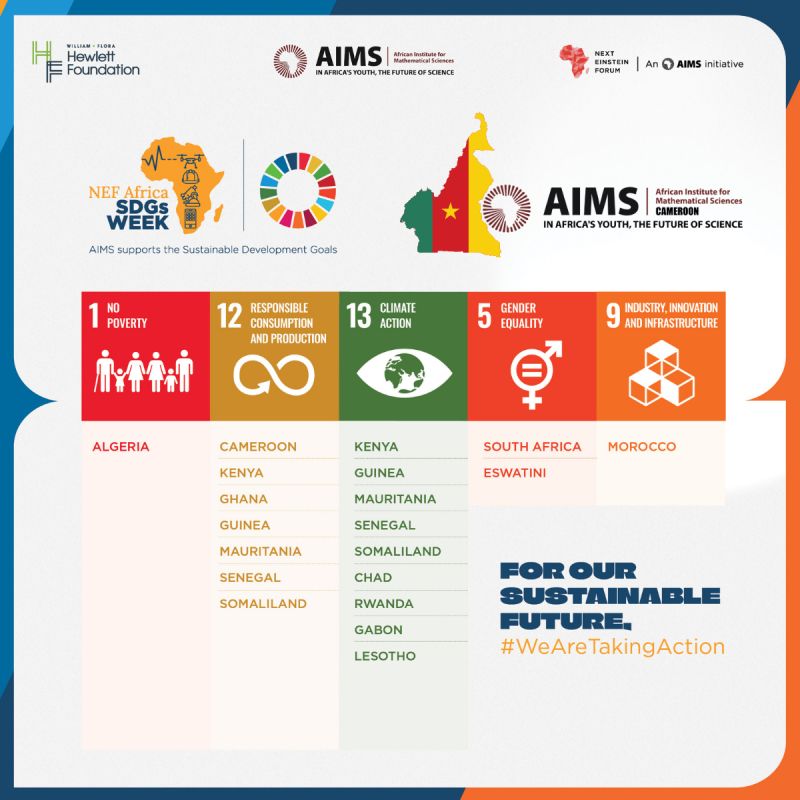
Youths are the main beneficiaries and contributors of the 17 Sustainable Development Goals (SDGs). In partnership with the Williams and Flora Hewlett Foundation, AIMS Cameroon through the Next Einstein Forum (NEF) launched a pioneering effort of spotlighting youth-led institutions’ contribution to achieving Sustainable Development Goals. The main purpose of the Next Einstein Foundation African Sustainable
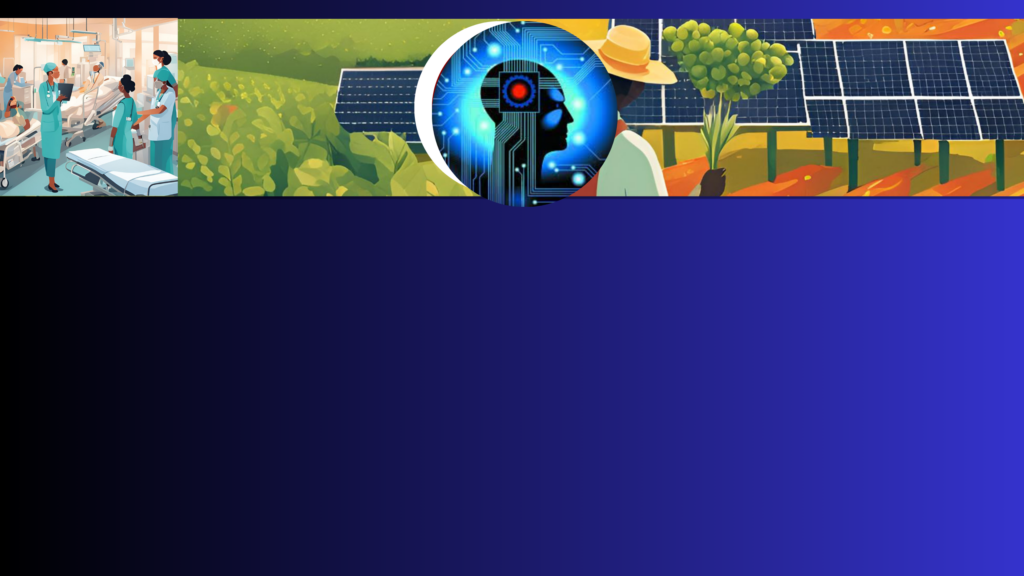
| About | Partners | Organizers | Organizing committee | Keynote speakers | Tentative programme | Register here | About the conference The main objective of this international conference is to bring together renowned experts and users of Data Science (DS) and Artificial Intelligence (AI) to discuss not only on the recent advances in DS
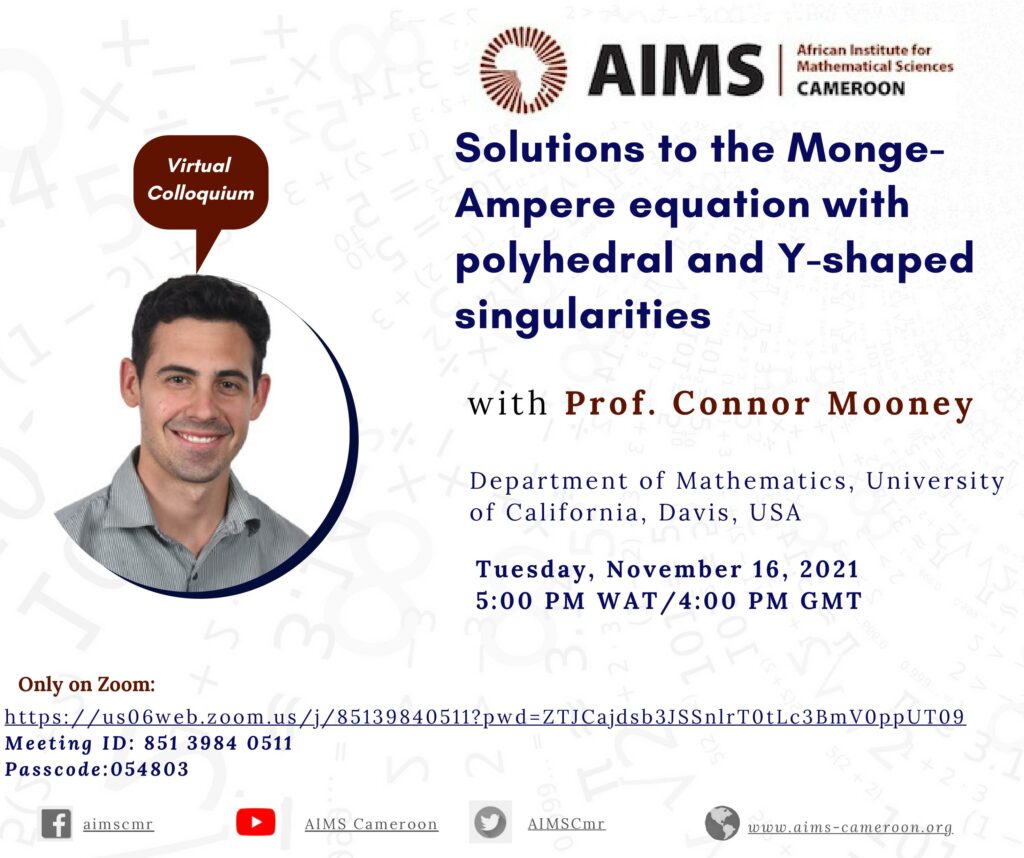
Surfaces which The Monge-Ampere equation $\mathrm{det}(D^2u) = 1$ arises in prescribed curvature problems and in optimal transport. An interesting feature of the equation is that it admits singular solutions. We will discuss new examples of convex functions on $\mathbb{R}^n$ that solve the Monge-Ampere equation away from finitely many points but contain polyhedral and $Y$-shaped singular structures. Along the way, we will discuss
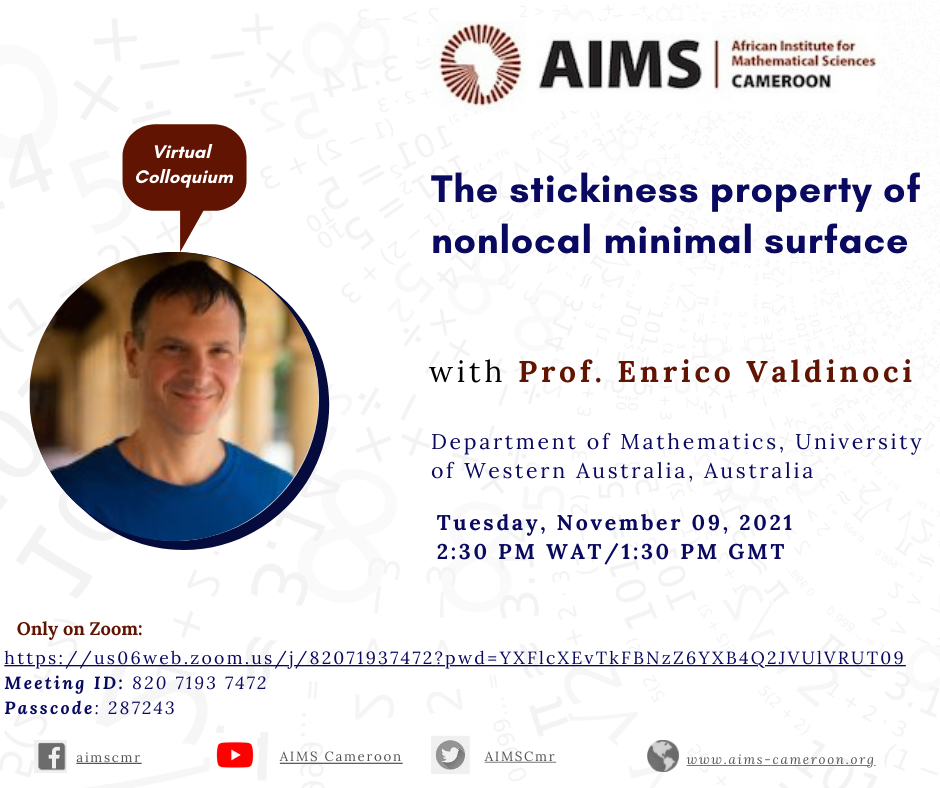
Surfaces that minimize a nonlocal perimeter functional exhibit quite different behaviors than the ones minimizing the classical perimeter. Among these peculiar features, an interesting property, which is also in contrast with the pattern produced by the solutions of linear equations, is given by the capacity, and the strong tendency, of adhering at the boundary. We
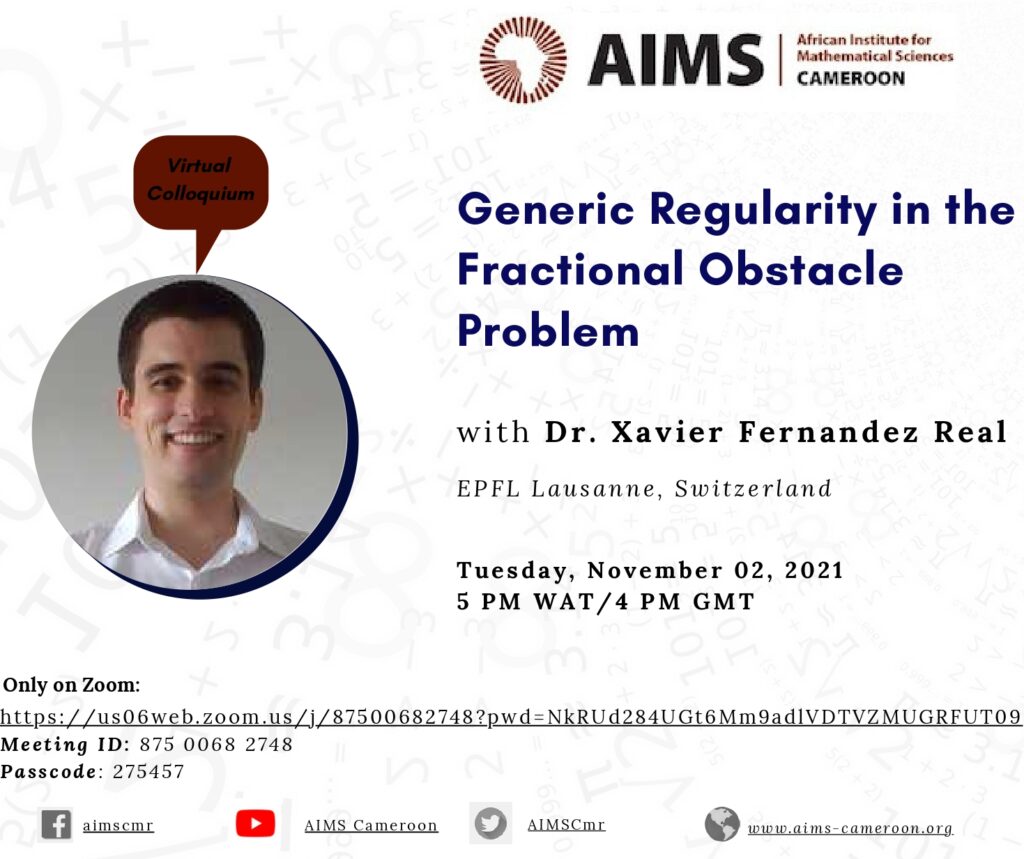
The fractional obstacle problem in $\mathbb R^n$ with obstacle $\varphi\in C^\infty(\mathbb{R}^n)$ can be written as \[\min\{(-\Delta)^s u , u-\varphi\} = 0,\quad\textrm{in }\quad\mathbb{R}^n. \] The set $\{u = \varphi\} \subset \mathbb{R}^n$ is called the contact set, and its boundary is the free boundary, an unknown of the problem. The free boundary for the fractional obstacle problem can be divided between two subsets: regular points
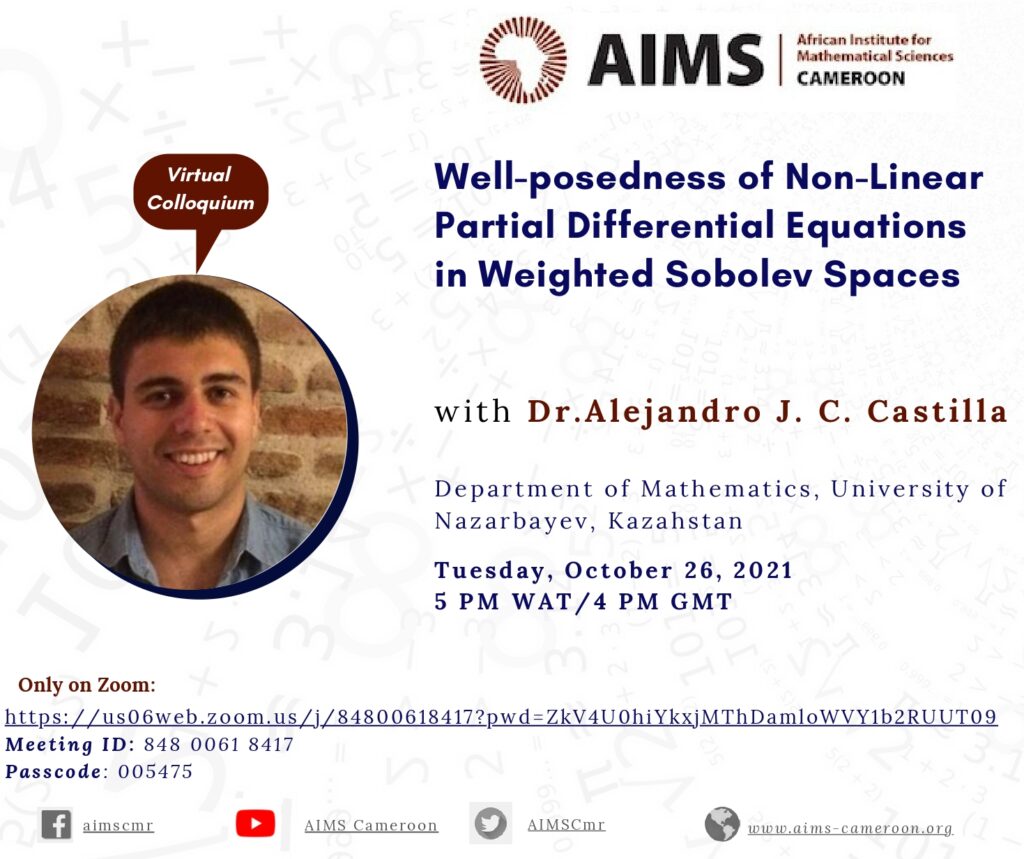
The well-posedness (existence, uniqueness, and stability) of the solutions for several nonlinear dispersive PDEs with initial data in Sobolev spaces has been intensively analyzed. However, Sobolev functions do not necessarily decay fast at infinity, which is in many applications an unrealistic assumption. In this talk, we discuss examples of existence and uniqueness results in weighted

AIMS Cameroon Research Center will organize the maiden edition of its annual scientific event named AIMS-Cameroon Mathematics and its Applications Meeting (ACMAM) from the 12th to the 14th of January, 2022. Lectures take place at the AIMS Cameroon Research Center in Limbe South West Region. The AIMS-Cameroon Mathematics and its Applications Meeting (ACMAM) is an
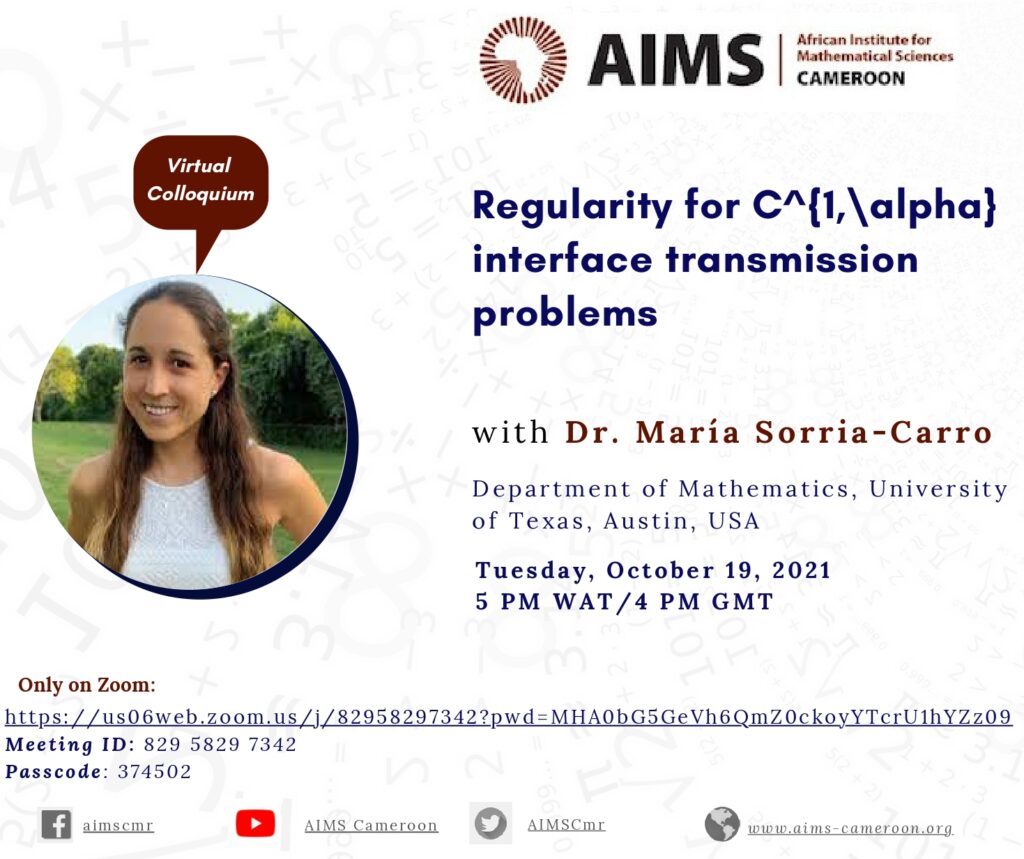
Transmission problems originally arose in elasticity theory, and they are nowadays of great interest due to their many applications in different areas in science. Typically, in these problems, there is a fixed interface where solutions may change abruptly, and the primary focus is to study their behavior across this surface. In this talk, we will
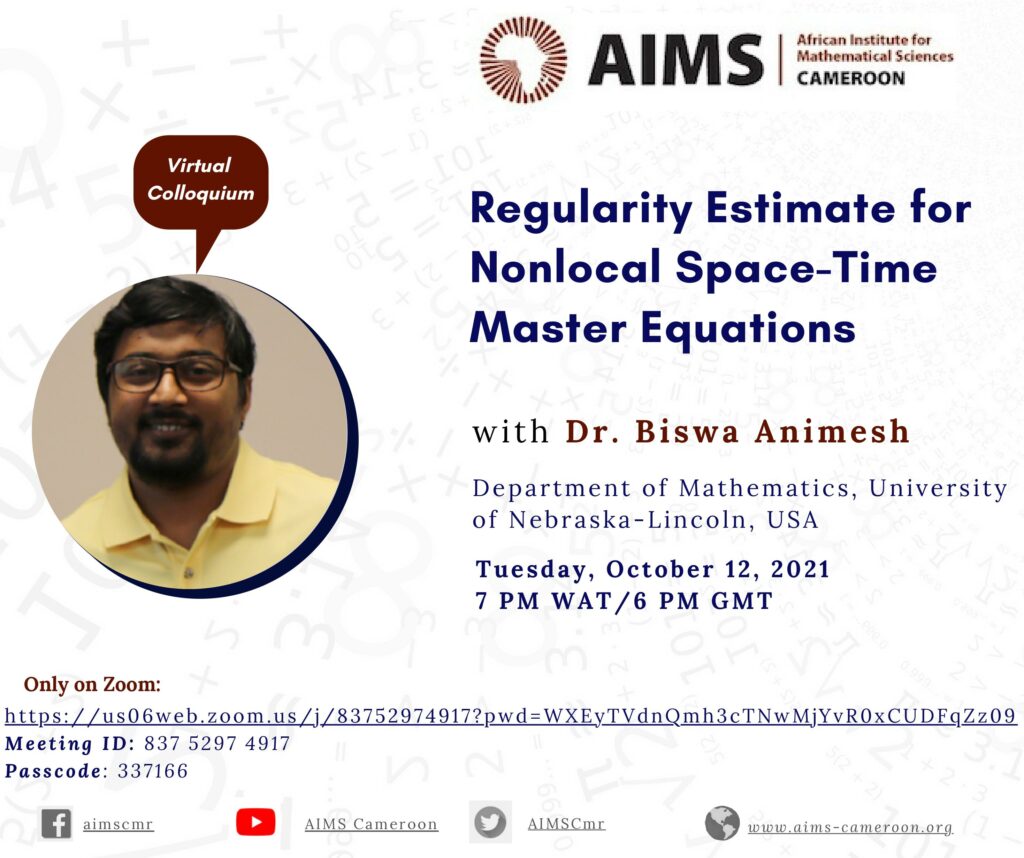
We analyze regularity estimates for solutions to nonlocal space-time equations driven by fractional powers of parabolic operators in divergence form. These equations are fundamental in semipermeable membrane problems, biological invasion models and they also appear as generalized Master equations. We develop a parabolic method of semigroups that allows us to prove a local extension problem










